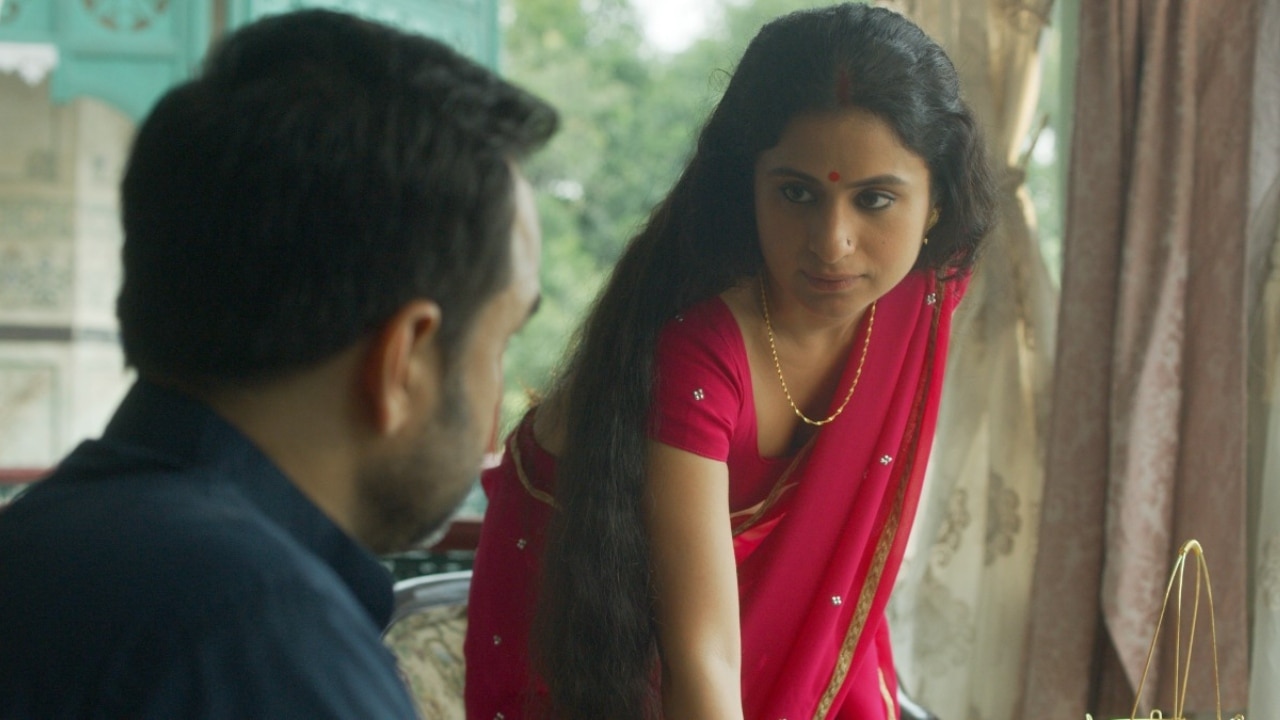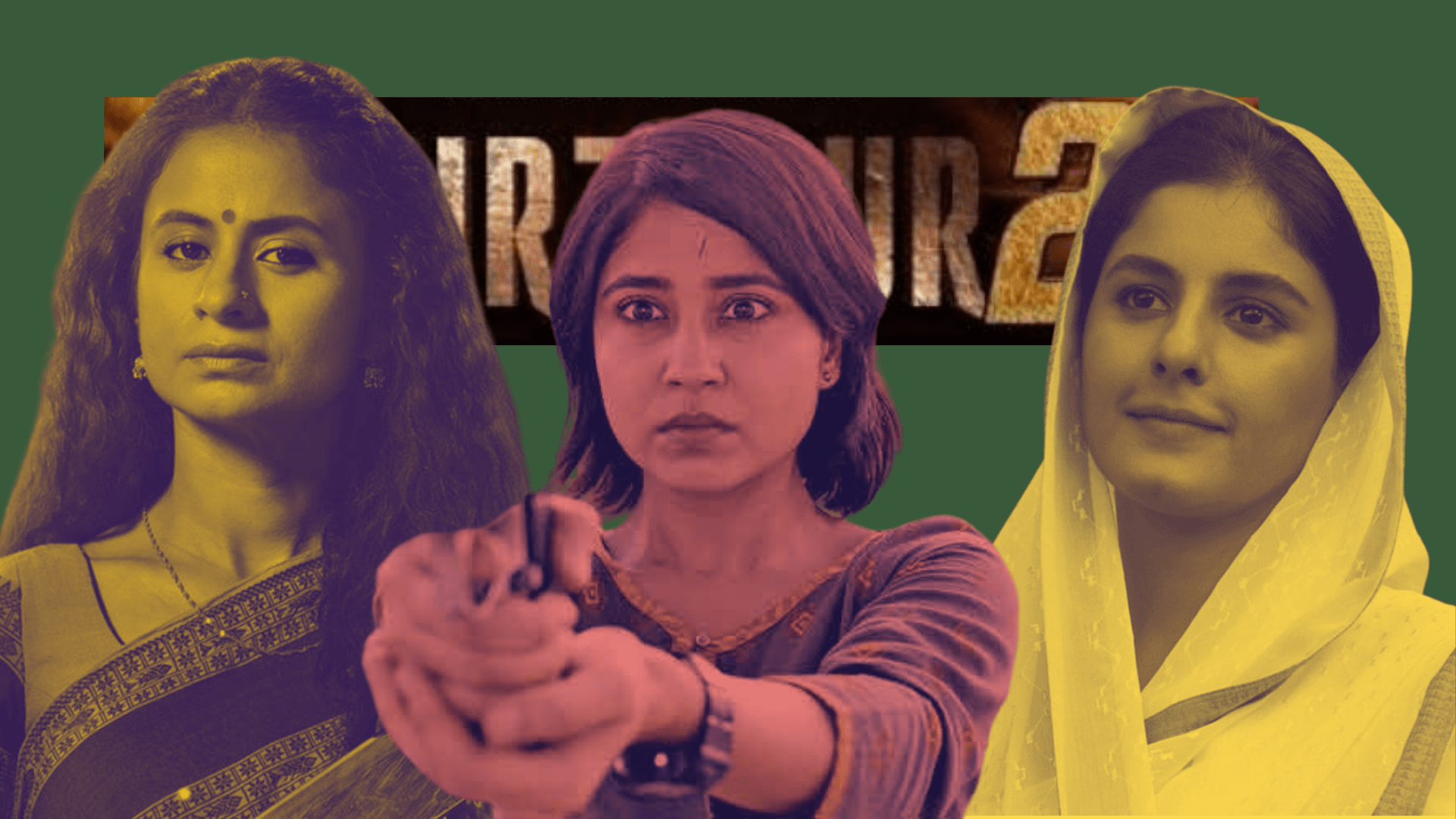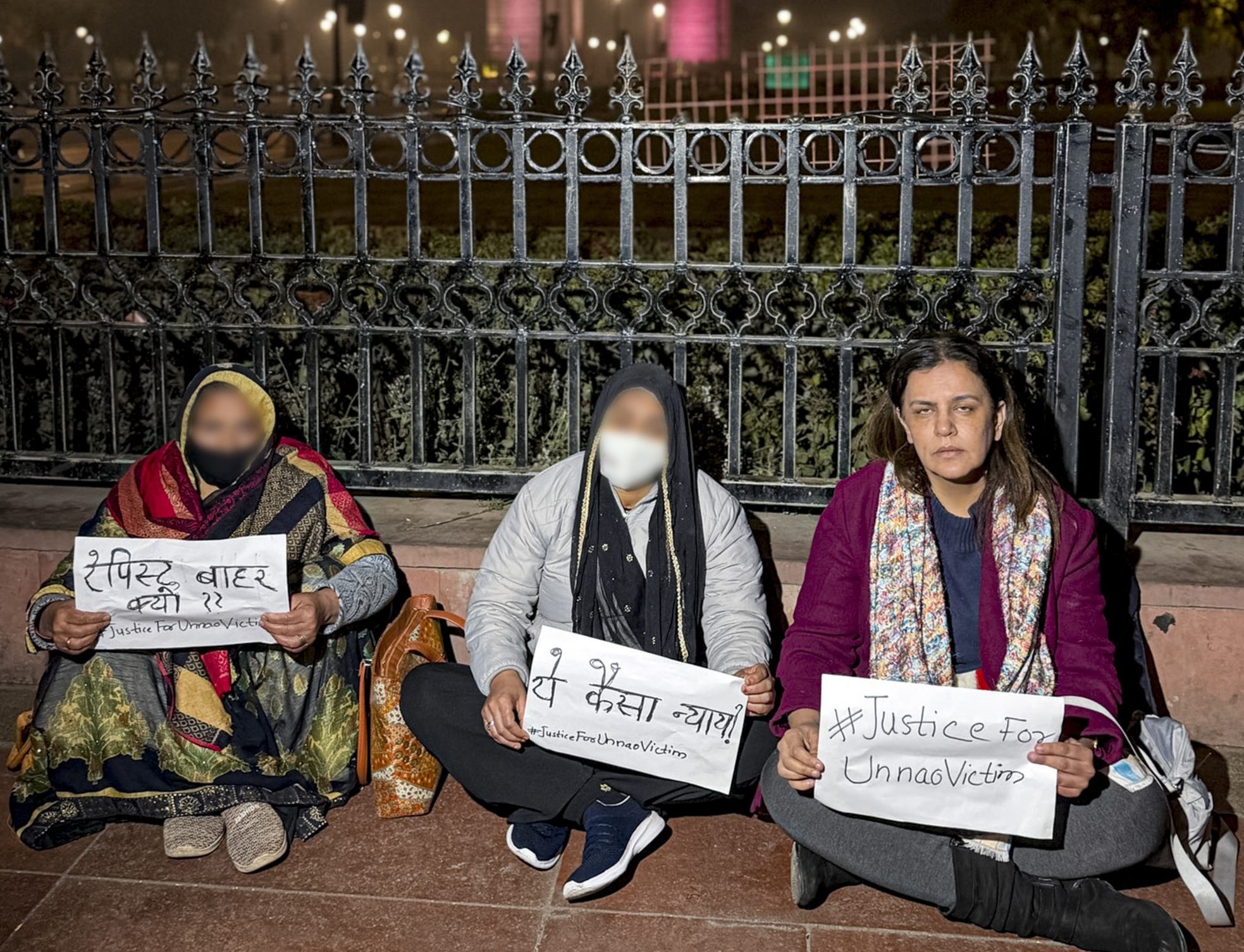TW: Violence, Rape
A new kind of womanhood emerges in Mirzapur season 2: one that is textured and transcends all parameters used to define a woman. Beena Tripathi, the submissive and dutiful Brahmin wife knows exactly when to strike and how. Radhiya, the lower class house help who doubles up as a sex slave of her masters has a lot in common with her Brahmin mistress. They are both used and abused and they have a shared sisterhood that is founded on rage.
Then there is Golu Gupta who is out for blood, to exact revenge for her sister and her fiancé’s macabre deaths. She undergoes a physical transformation, which is symbolically almost like ungendering herself as she crops her hair short, wears unisex clothes and crosses over to enter a male space of violence, drugs and arms-dealing. Golu takes the reins of her sex life and does not flinch from saying, “Is rishtey mein control hamesha hamara rahega” to the man she shares a sexual relation with. And then there is Madhuri, a Yadav woman married into a Brahmin family who plans with precision and makes a move which ensconces her from the relatively powerless profile of the daughter-in-law of the Tripathis to the seat of the Chief Minister of the state. Madhuri manages to befuddle both her father-in-law and grandfather-in-law, and eventually exacts the duly deserved respect from her gangster and temperamental husband Munna, at the same time managing to get enough social and political capital which makes her the Chief Minister.
Also read: Paatal Lok: A Gripping Study Into Masculinities In North India
Beena and Radhiya in Mirzapur Season 2 have a shared rage within the domestic space against the men of the family, which cuts across class barriers as they rise, confront and finally annihilate a common oppressor, the grand old brahmin patriarch and master of the household who has been sexually abusing the maid and his granddaughter-in-law. Madhuri removes herself from this oppressive space as she takes the political leap which makes her all powerful and self-reliant and technically her father-in-law’s boss who is a minister in her cabinet. In one deft move, Mirzapur Season 2 shows how Madhuri not only facilitates her rise through him but also ensures that he does not get to be the Chief Minister. She treads carefully with a kind of subtle caution underneath her composed exterior as one would when venturing into a terrain infested with scavengers or man-eating beasts.
Mirzapur Season 2 introduces us to women who know how to use men to their advantage, whether it is Golu who blatantly asks Shatrugan Tyagi to have sex with her but dismisses the possibility of love or for that matter Beena who confides in three men that the child she is pregnant with, could be theirs, thus winning the unconditional loyalty of each.

Mirzapur Season 2 introduces us to women who know how to use men to their advantage, whether it is Golu who blatantly asks Shatrugan Tyagi to have sex with her but dismisses the possibility of love or for that matter Beena who confides in three men that the child she is pregnant with, could be theirs, thus winning the unconditional loyalty of each. The women do what they do, purely out of the instinct and the insistence to survive, quietly moving from strength to strength, keeping a strict watch on the adversary’s weaknesses since the spaces they are navigating is rife with beasts of prey. Where each woman is trying to take a course of action that will make her less vulnerable.
What is heartening about these unusual women of Mirzapur Season 2 is not the glorification or the celebration of the latent brutality in them but of how they are capable of surviving and securing their life and dignity. For Beena, it is clearly a question of her life and that of her son. She is a ceremonious daughter-in-law without agency in a houseful of men whose hands are soiled with the blood of hundreds and whose manhood is a constant threat to her. She is raped by her own father-in-law when the latter catches her in the act of making love to the cook. He makes her emasculate the cook and then forces himself on her. The maid Radhiya is a little more than an available piece of meat or a bone which the dog-like Tripathi men feel like chewing now and then. She is alternately abused and raped by Munna and Satyanand Tripathi, the grandson and the grandfather of the Tripathi family respectively.
Undoubtedly extreme situations demand extreme measures. The women are indeed at times revolting in what they do but that is only because we are conditioned into consuming violence only inflicted and enacted by men. In fact we even celebrate and valorise violence when it is a male body carrying it out. This is obviously because we have normalised the association of violence, aggression, strength and power with men. Thus our jaws drop when we see a formerly studious Golu just dropping her pants and taking the lead when she is with Shatrughan Tyagi. Or when Beena takes the gun to kill her father-in-law, the lecherous patriarch, and Radhiya brings the cleaver from the kitchen urging her to use it so that death doesn’t come instantly.
Just like the season deconstructs standard notions of femininity, it does the same with masculinity too. Shatrughan Tyagi embodies a softer masculinity unlike what is conventionally expected of a son of a drug-lord. He is compassionate and truly in love with Golu who only treats him as her physical need. The roles have clearly reversed. He is unable to kill when asked to and ends up getting killed instead. It is also refreshing to not see a slightly annoying archetype of the apologetic or the pathological Muslim. There is Lala, a Muslim drug-lord who is secular and progressive and wouldn’t want Guddu Pandit to marry his widowed daughter because he knows Guddu is on a fatal mission to avenge the deaths of his brother and wife and that his days are numbered. And there is Maqbool, the archetypal slave, who serves the Tripathis with unquestioning loyalty, barely speaks and yet his caring and sensitive side manifest as he tends to his inert mother and plays surrogate father to his nephew Babar, sharing family time with both.

We see a hypermasculine and impulsive Guddu Pandit from season 1 softening into a more sensitive and giving man who steps into the shoes of a surrogate father to raise an orphaned girl. We also see the colourful crested Robin who Dimpy falls in love with. Robin not only defies standard norms of men’s fashion by wearing cute, floral shirts and colours that would normally be described as feminine and he also says in his first meeting with Guddu that he is born of a sex worker. The story of course keeps changing and we never get to know the truth about Robin’s mother. But the initial shock his sartorial depiction brings to us is neutralised as he shifts from the peripheries of the narrative to someone who needs to be taken seriously.
Mirzapur Season 2 can be a lot of gory and disturbing things but it has definitely reconfigured hegemonic notions of normative masculinity and femininity through the unusual character portrayals by exploiting the highly popular genre of the crime thriller and thus dismantling the universal construct of the male and female in the popular imaginary.
Also read: The Legendary Phoolan Devi
Mirzapur Season 2 can be a lot of gory and disturbing things but it has definitely reconfigured hegemonic notions of normative masculinity and femininity through the unusual character portrayals by exploiting the highly popular genre of the crime thriller and thus dismantling the universal construct of the male and female in the popular imaginary.
About the author(s)
Dr. Shyaonti Talwar is an academician, researcher and a writer whose areas of interest include popular culture, social inequality, literature, mythology and gender. A poet and a performing artist, she loves creative expressions and feels it is important to voice her critical observations. Writing is therapeutic for her and makes her feel awake and alive. She can be found on LinkedIn and Twitter.





Is it emerging or imagined?.. Extrapolated through certain life incidents.